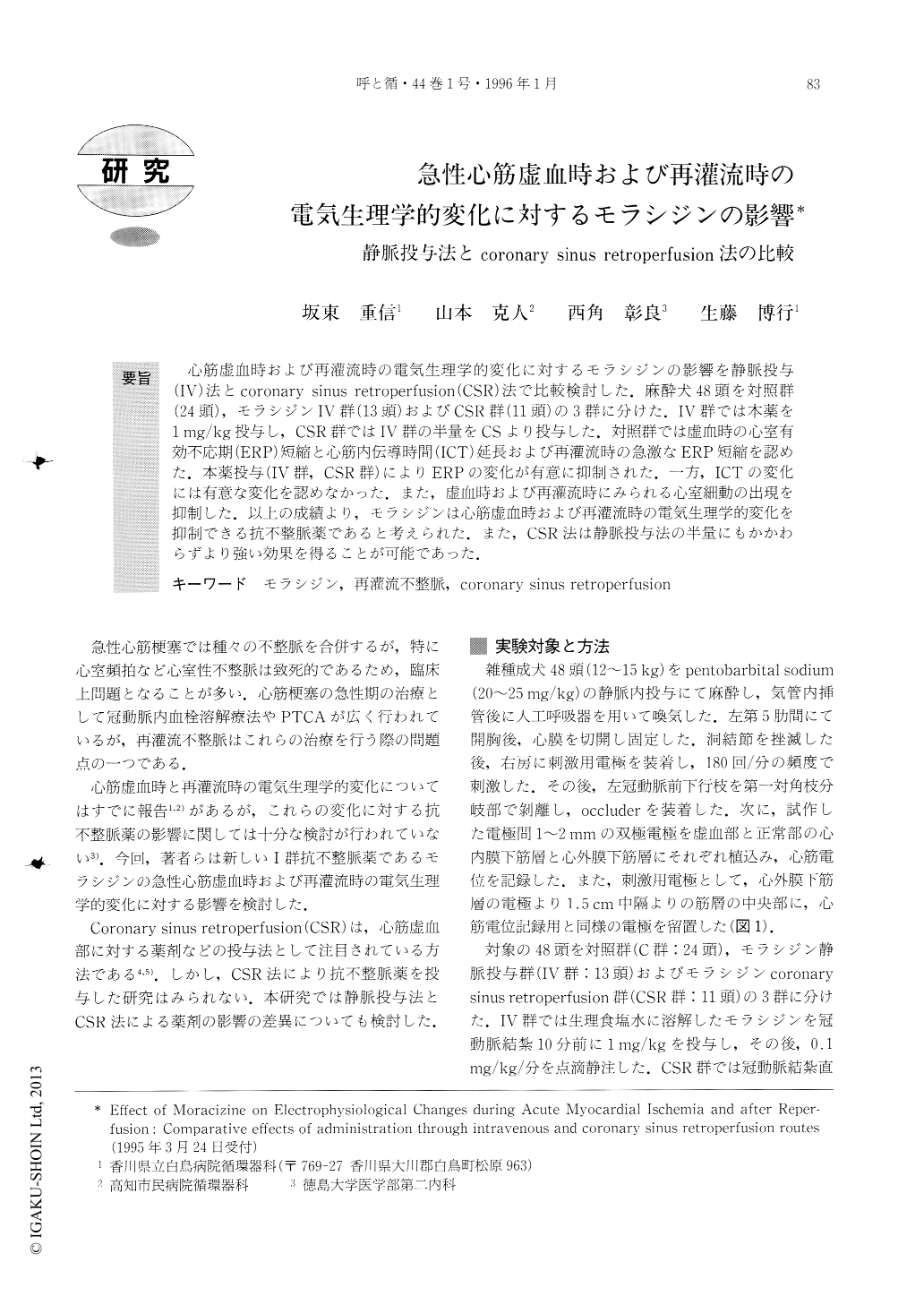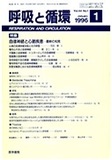Japanese
English
- 有料閲覧
- Abstract 文献概要
- 1ページ目 Look Inside
心筋虚血時および再灌流時の電気生理学的変化に対するモラシジンの影響を静脈投与(IV)法とcoronary sinus retroperfusion(CSR)法で比較検討した.麻酔犬48頭を対照群(24頭),モラシジンIV群(13頭)およびCSR群(11頭)の3群に分けた.IV群では本薬を1mg/kg投与し,CSR群ではIV群の半量をCSより投与した.対照群では虚血時の心室有効不応期(ERP)短縮と心筋内伝導時間(ICT)延長および再灌流時の急激なERP短縮を認めた.本薬投与(IV群,CSR群)によりERPの変化が有意に抑制された.一方,ICTの変化には有意な変化を認めなかった.また,虚血時および再灌流時にみられる心室細動の出現を抑制した.以上の成績より,モラシジンは心筋虚血時および再灌流時の電気生理学的変化を抑制できる抗不整脈薬であると考えられた.また,CSR法は静脈投与法の半量にもかかわらずより強い効果を得ることが可能であった.
We evaluated the effects of moracizine on electro-physiological changes during acute myocardial is-chemia and after reperfusion in dogs. The effects of administration through the intravenous route (IV) and by coronary sinus retroperfusion (CSR) were also compared. A total of 48 dogs were divided into 3 groups : IV group (1mg/kg, 13dogs), CSR group (0.5 mg/kg, lldogs) and control group (24 dogs).
The left anterior descending coronary artery was ligated for 10 minutes and quickly reopened. We obser-ved a shortening of the ventricular effective refractory period (ERP) and a prolongation of the intramyocar-dial conduction time (ICT) in the ischemic zone in thecontrol group. When administered intravenously, mor-acizine inhibited the shortening of ERP but did not inhibit prolongation of ICT. The changes in ERP and ICT were inhibited to a greater extent with CSR than through intravenous administration even though the dose given by CSR was only one-half that given intravenously. In the control group, ventricular fibrilla-tion (Vf) occurred in 12 of 24 dogs (50.0%) during ischemia and in 5 of 12 dogs (41.7%) after reperfusion. Vf occurred during ischemia and after reperfusion, respectively, in 30.8% and 11.1% of IV group, and 27.3% and 0% of the CSR group. Thus, moracizine prevented ventricular arrhythmia during myocardial ischemia and after reperfusion. Administration of antiarrhythmic agents by CSR may be useful for treating patients with acute myocardial infarction and intractable arrhyth-mias, according to our experimental results.

Copyright © 1996, Igaku-Shoin Ltd. All rights reserved.


